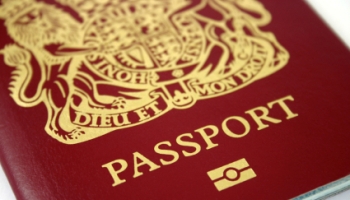

The Identity and Passport Service website has been merged into the Home Office site as part of government cost-cutting plans to reduce the number of ‘vanity websites’.
When users now visit the Identity and Passport Services website, they are confronted with the following message.
“It is the government’s intention to reduce the number of websites to provide cost savings and improved access to government information, departments and their services,” reads the notice on the website. “To this end, Identity and Passport Service (IPS) content has been integrated into the Home Office’s website.”
An archive of the site is available here, archived as of 9 January 2011.
Prior to that in January 2010, the then Labour government said that it would close more than half of its websites. It admitted at the time that it had closed 907 of its 1,700 websites, following the recommendations of the Varney report back in 2006.
Yet despite that previous culling of websites, the coalition government found that there were still 820 websites as of March 2010. It identified three quarters of them that could be culled.
As part of the new government’s efficiency drive in order to cut the UK’s record deficit, all of the existing 820 government funded websites will be “subject to a review looking at cost, usage and whether they could share resources better,” the coalition government stated back in June 2010.
“No new websites will be permitted except for those that pass through a stringent exceptions process for special cases, and are cleared by the Efficiency board which is co-chaired by Francis Maude and the Chief Secretary to the Treasury, Danny Alexander,” said the Cabinet Office.
eWEEK Europe UK did check with the Cabinet Office as to the exact number of websites that have so far been culled as of May 2011, but a spokesman was not available at the time of writing.
Earlier this week, reports indicated that the now defunct e-petition web page on the Number 10 Downing Street website would be moved to the government’s Directgov website.
Of course, the Directgov website itself is currently under review and could be replaced, with the recently created prototype website called alpha.gov.uk.
Alphagov has been developed at a cost of £261,000 by the Cabinet Office, in line with the recommendations of a review by the government’s digital champion, Martha Lane Fox.
The website offers an example of what a single UK government website could look like, but is not permanent and is not intended to replace any other government sites.
Whatever its future, it is clear that the government is hoping to move more public services online. In November 2010, Cabinet Office minister Francis Maude announced that public services transactions would increasingly be provided as online-only services.
SoftBank has agreed a funding deal that will see OpenAI being provided with up to…
Tesla sales have plummeted to lowest level in three years, as deliveries of new EVs…
New addition. Next generation foundation model, as Amazon Nova model launches to perform actions within…
Head of artificial intelligence research at Meta Platforms has announced she is leaving the social…
No decision yet, after media reports CK Hutchison was to spin off its global telecom…
Ahead of 5 April deadline, Trump is to hold White House meeting over possible investors…